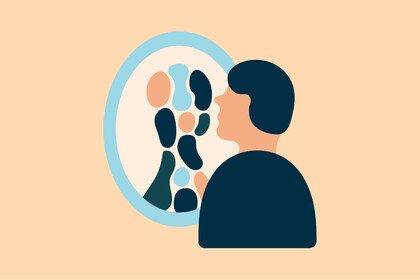
Conclusion
This is the conclusion of the Wellcome Global Monitor 2020: Mental Health
As noted in the Methodology, it is important to be aware of limitations when reviewing the data in this report. International survey results may be influenced by translation choices, difficulty reaching certain sub-populations, cultural influences that affect how people respond to certain questions or question types, and other country-level issues. COVID-19 added further complications in 2020 by forcing a change from face-to-face to telephone-only interviewing in many countries and areas, thereby increasing the coverage error in places where not everyone has access to phones. Readers should be aware of these limitations when drawing conclusions, particularly with regard to cross-national comparisons.
Nonetheless, the Global Monitor data offer robust findings that present challenges for the global mental health community.
- More than nine in 10 people worldwide (92%) said mental health is as important as physical health for overall wellbeing, with almost half (46%) saying it is more important. People in lower-income countries were particularly likely to feel mental health is more important than physical health, highlighting the need for broader access to low-cost, evidence-based mental health treatments in low-income regions.
- However, science’s critical role in studying and alleviating mental health issues seems unclear to much of the global population. Less than one-third of people around the world said science can explain a lot about how feelings and emotions work (27%) or can do a lot to help treat anxiety or depression (31%). By contrast, about half said science can do a lot to help treat infectious diseases (53%) or cancer (49%).
- Nineteen per cent of people worldwide said they have experienced anxiety or depression that kept them from continuing their regular daily activities for two weeks or longer. This figure was relatively consistent in all but two global regions – Latin America (where the rate was higher) and East Asia (where the rate was lower) – but there were significant differences among demographic groups within countries. Younger people and those on the low end of their country’s income distribution were more likely to have experienced anxiety or depression, especially in middle income and high-income countries.
- More than seven in 10 people who have experienced anxiety or depression had tried one of the three following approaches to feeling better: 1) talking to friends or family (78%), 2) improving healthy lifestyle behaviours (73%), or 3) spending time in nature/the outdoors (71%). Two clinical approaches were less common, largely because they are skewed towards high-income regions: taking prescribed medication (49%) and talking to a mental health professional (43%). Engaging in religious/spiritual activities was also less prevalent worldwide, at 43%; this method was most common in lower-middle-income countries.
- The most common actions people took to alleviate anxiety or depression were also those most likely to be described as ‘very helpful’ by those who had taken them. More than six in 10 people who had tried spending time in nature (67%), improving healthy lifestyle behaviours (66%) and talking to friends or family (63%) found the particular method they had tried very helpful for making them feel better; for each method, no more than 11% said the approach was not helpful.
- On average, people who have experienced anxiety or depression had tried 4.7 of the eight actions listed in the survey to make themselves feel better. Eighty-five per cent said they had tried at least three of the eight actions listed in the survey, 3% said they had not tried any and 4% said they had tried just one. Ten per cent reported taking all eight approaches.
Perhaps the most important point to take away from this research is the pervasive disconnect between the high level of importance given to progressing solutions to mental health problems and the low belief in the power of science to help find those solutions for how the world views mental health science. Though an overwhelming majority worldwide said mental health is an important issue, most were less convinced that scientific research can address it. This critical finding implies that the scientific community has not effectively demonstrated how transformational science can be for mental health by clearly conveying the role it can play in systematically investigating what works to alleviate emotional distress and why. This disconnect may relate to the second take-away from this report that shows the variety of routes out of anxiety or depression people are trying. It may be that science needs to look more closely at the full range of actions people with anxiety or depression take to feel better. Wellcome aims to bridge this gap by providing mental health researchers and practitioners with the resources they need to study a broader range of interventions.
Ultimately, Wellcome believes that changing the global conversation about mental health will expand people’s notion of what science can accomplish by driving progress towards a world in which no one is held back by mental health problems.
Read all chapters
- Executive summary
- Introduction
- Methodology
- Chapter 1: Views on mental health and the role of science in understanding and addressing problems
- Chapter 2: Experience of anxiety or depression
- Chapter 3: How people manage anxiety or depression
- Chapter 4: Perceived helpfulness of approaches to alleviating anxiety or depression


